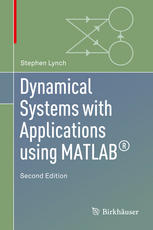

Most ebook files are in PDF format, so you can easily read them using various software such as Foxit Reader or directly on the Google Chrome browser.
Some ebook files are released by publishers in other formats such as .awz, .mobi, .epub, .fb2, etc. You may need to install specific software to read these formats on mobile/PC, such as Calibre.
Please read the tutorial at this link: https://ebookbell.com/faq
We offer FREE conversion to the popular formats you request; however, this may take some time. Therefore, right after payment, please email us, and we will try to provide the service as quickly as possible.
For some exceptional file formats or broken links (if any), please refrain from opening any disputes. Instead, email us first, and we will try to assist within a maximum of 6 hours.
EbookBell Team

5.0
110 reviewsThis textbook, now in its second edition, provides a broad introduction to both continuous and discrete dynamical systems, the theory of which is motivated by examples from a wide range of disciplines. It emphasizes applications and simulation utilizing MATLAB®, Simulink®, the Image Processing Toolbox® and the Symbolic Math toolbox®, including MuPAD.
Features new to the second edition include
· sections on series solutions of ordinary differential equations, perturbation methods, normal forms, Gröbner bases, and chaos synchronization;
· chapters on image processing and binary oscillator computing;
· hundreds of new illustrations, examples, and exercises with solutions; and
· over eighty up-to-date MATLAB program files and Simulink model files available online. These files were voted MATLAB Central Pick of the Week in July 2013.
The hands-on approach of Dynamical Systems with Applications using MATLAB, Second Edition, has minimal prerequisites, only requiring familiarity with ordinary differential equations. It will appeal to advanced undergraduate and graduate students, applied mathematicians, engineers, and researchers in a broad range of disciplines such as population dynamics, biology, chemistry, computing, economics, nonlinear optics, neural networks, and physics.
Praise for the first edition
Summing up, it can be said that this text allows the reader to have an easy and quick start to the huge field of dynamical systems theory. MATLAB/SIMULINK facilitate this approach under the aspect of learning by doing.
—OR News/Operations Research Spectrum
The MATLAB programs are kept as simple as possible and the author's experience has shown that this method of teaching using MATLAB works well with computer laboratory classes of small sizes…. I recommend ‘Dynamical Systems with Applications using MATLAB’ as a good handbook for a diverse readership: graduates and professionals in mathematics, physics, science and engineering.
—Mathematica